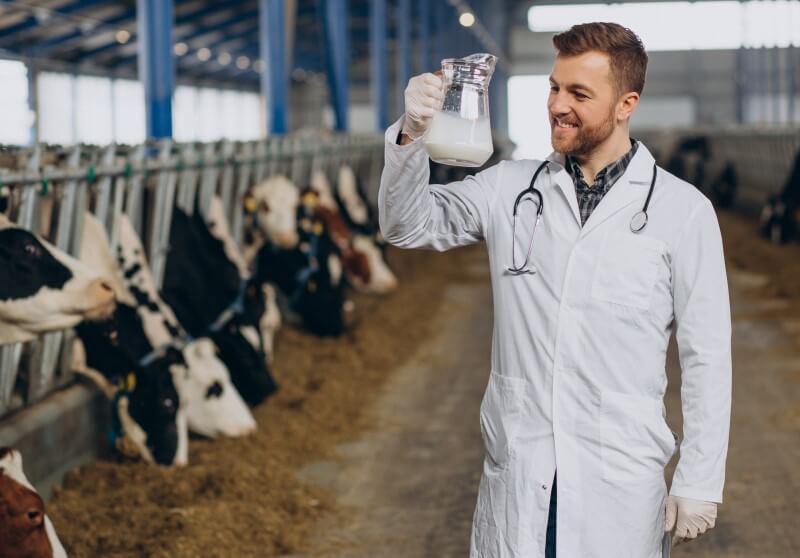Importance of Stainless Steel Equipment in Dairy Equipment

When it comes to dairy production, hygiene is non-negotiable. Milk and dairy products are highly perishable and prone to bacterial contamination if not handled under precise sanitary conditions. That’s why stainless steel has become the gold standard for equipment used across every stage of dairy processing, from pasteurisation to packaging.
In the modern dairy industry stainless steel equipment isn’t just about durability; it’s about protecting product quality, ensuring food safety and maintaining operational efficiency.
Let’s explore why stainless steel is indispensable for achieving and maintaining hygiene in dairy facilities.
1: Non-Porous and Easy to Clean
One of the biggest advantages of stainless steel is its non-porous surface, which means it doesn’t absorb moisture, fats or bacteria. Unlike plastic or mild steel, stainless steel prevents microbial build-up, ensuring that surfaces remain smooth and sanitary.
This makes cleaning and sterilisation simpler and faster. Equipment like milk storage tanks, pipelines and pasteurisers can be cleaned using CIP systems, automated cleaning cycles that use hot water and detergents to remove any stains or residues from equipment. The smooth finish of stainless steel ensures these cleaning solutions reach every surface and prevent cross-contamination between batches.
2: Corrosion Resistance Against Dairy Acids
Dairy products, particularly milk and cheese, contain natural acids and salts that can corrode regular metals over time. Corrosion not only damages equipment but also creates microscopic pits where bacteria can thrive.
Stainless steel especially offers exceptional resistance to corrosion. These alloys contain chromium and nickel, forming a protective oxide layer that prevents rust and chemical damage. This property is critical in environments where equipment comes into frequent contact with acidic whey, lactic acid or cleaning agents.
3: High Heat and Chemical Tolerance
Dairy equipment must withstand temperatures during pasteurisation and sterilisation cycles as well as exposure to strong cleaning chemicals. Stainless steel maintains its structural integrity under these extreme conditions.
Whether it’s pasteurisers, milk silos or pipeline fittings, stainless steel ensures stability and safety even after years of operations. Its tolerance to heat also makes it ideal for use in steam sterilisation. A critical step in ensuring microbial control in dairy plants.
4: Smooth Surface Finish Prevents Bacterial Growth
The microscopic finish of a material plays a major role in hygiene. Stainless steel surfaces can be polished to achieve an ultra-smooth finish, leaving no room to cling or multiply.
This smoothness is particularly important in milk contact surfaces such as separators, homogenisers and piping systems. Even tiny scratches can harbour contaminants. Stainless steel minimises this risk, ensuring that every product maintains its purity and safety.
5: Durability and Cost-Effectiveness
While stainless steel may cost more upfront than mild steel or plastic alternatives, its long-term return on investment is far greater. It lasts for decades with minimal maintenance, resists wear and tear and remains sanitary throughout its life cycle.
Additionally, stainless steel equipment retains its appearance and performance even under continuous use, reducing downtime and maintenance costs, a crucial factor in high-volume dairy production environments.
Stainless Steel Experts at M&M Equipment Corp
In the dairy industry, hygiene is the foundation of trust. Every bottle of milk, cup of yoghurt or block of cheese depends on clean, safe and durable processing conditions. Stainless steel equipment plays a central role in achieving this, offering unmatched resistance to corrosion, easy cleaning and compliance with safety standards and a sustainable edge.
For dairy processors, investing in stainless steel isn’t just a choice; it’s a commitment to quality, safety, and excellence that defines every drop of milk that leaves the plant. Hence, M&M Equipment Corp. experts are here to guide you on your dairy equipment throughout the process.
